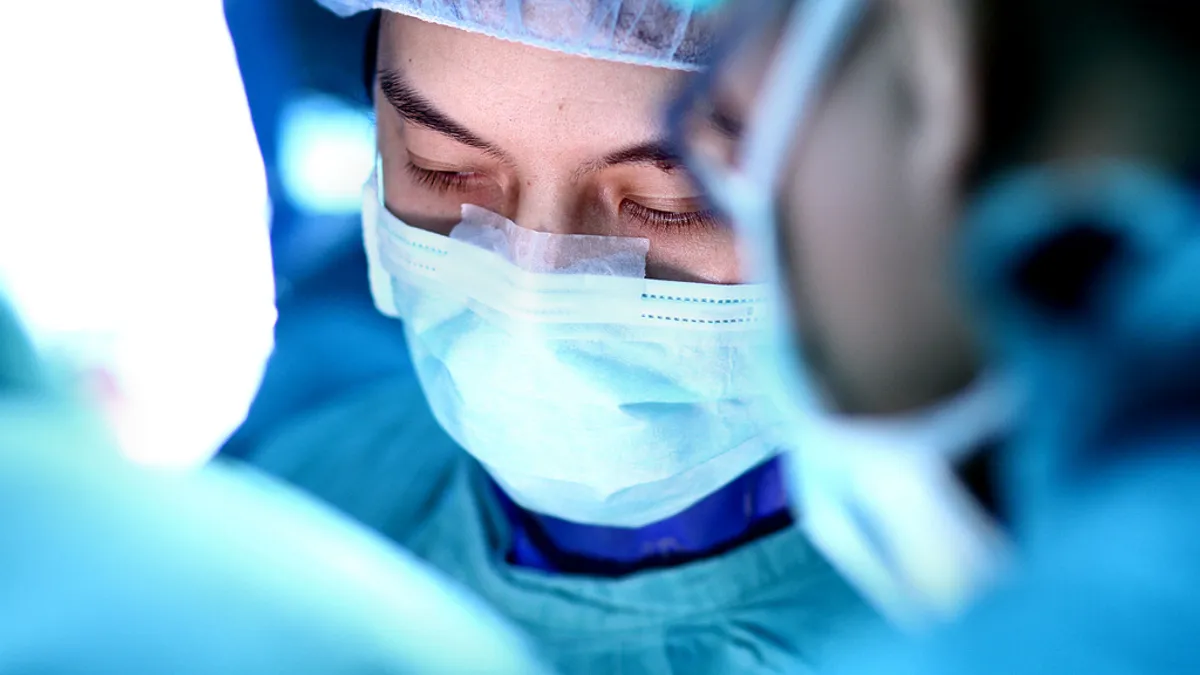Dive Brief:
- A treatment protocol that includes proper patient selection and early identification of right-sided heart failure improved survival and native heart recovery rates at two years in patients who received Abiomed’s Impella RP device in a post-approval study, the device maker said Friday.
- For this patient group, the survival rate of 72% in the two-year post-approval data matched the survival rate of the premarket study for the Impella RP heart pump, the company said. The results were presented Friday at a clinical meeting led by principal investigators for the National Cardiogenic Shock Initiative study.
- The survival rate for a second, sicker group of patients in the postmarket study was 14%. FDA and Abiomed believe physicians should be able to attempt lifesaving recovery measures on these patients but stress that earlier recognition and treatment improves survival, the company said.
Dive Insight:
Abiomed is working to restore confidence in its Impella line after FDA notified doctors in February of higher postmarket mortality in patients who got the right-heart system than was seen in premarket clinical trials. Although FDA issued a follow-up letter to doctors in May clarifying that lower survival was associated with a subgroup of sicker patients who would not have qualified for the pre-market studies, concerns about the device’s safety have lingered, dampening company sales.
In a note to clients following the Transcatheter Cardiovascular Therapeutics symposium in September, Jefferies analysts said questions on the data have persisted, with some providers not convinced the value of the device outweighs the effort to use it. "The slowing in growth at (Abiomed) over the past two quarters can't be ignored, but whether this is temporary or evidence of some new paradigm is still in question," the analysts wrote.
Right-sided heart failure is far less common than failure of the left chamber, which typically weakens first. The Impella RP right-heart pump, which gained FDA approval in 2017, is the only right-sided device on the U.S. market. The device is implanted in patients needing temporary emergency support to take over pumping function and allow the heart to rest and potentially recover.
Although the right-heart pump generates just a small fraction of Abiomed's overall sales, the company has said that the FDA letters created confusion among customers that led to a slowdown in growth across its Impella product portfolio, including its left-sided pumps.
Investors have taken notice as well, and Abiomed’s stock has lost nearly half of its value since early February. CEO Michael Minogue told analysts in August it will take time to educate customers on the meaning of the clinical data.
The two-year results from the Impella RP post-approval study showed physicians who followed FDA’s approved protocol for the device saw 72% patient survival, the same rate reached in pre-market approval data, and 88% native heart recovery, Abiomed said. In the company’s announcement of the new data, Chief Medical Officer Seth Bilazarian said the FDA letters raised awareness of the importance of identifying right-sided heart failure in the catheterization lab and intensive care unit.
FDA recognizes classification of Impella RP post-approval study patients into two categories, Abiomed said. A Recover Right protocol group includes patients who met the inclusion and exclusion criteria of the pre-market clinical trial for the device. A second group of salvage support patients who would not have qualified for the premarket studies are those who may have suffered cardiac arrest outside the hospital, cardiogenic shock for longer than 48 hours, or a pre-implant hypoxic or ischemic neurologic event before getting the Impella RP pump.
Abiomed plans to report second quarter earnings for its fiscal year 2020 on Oct. 31.










